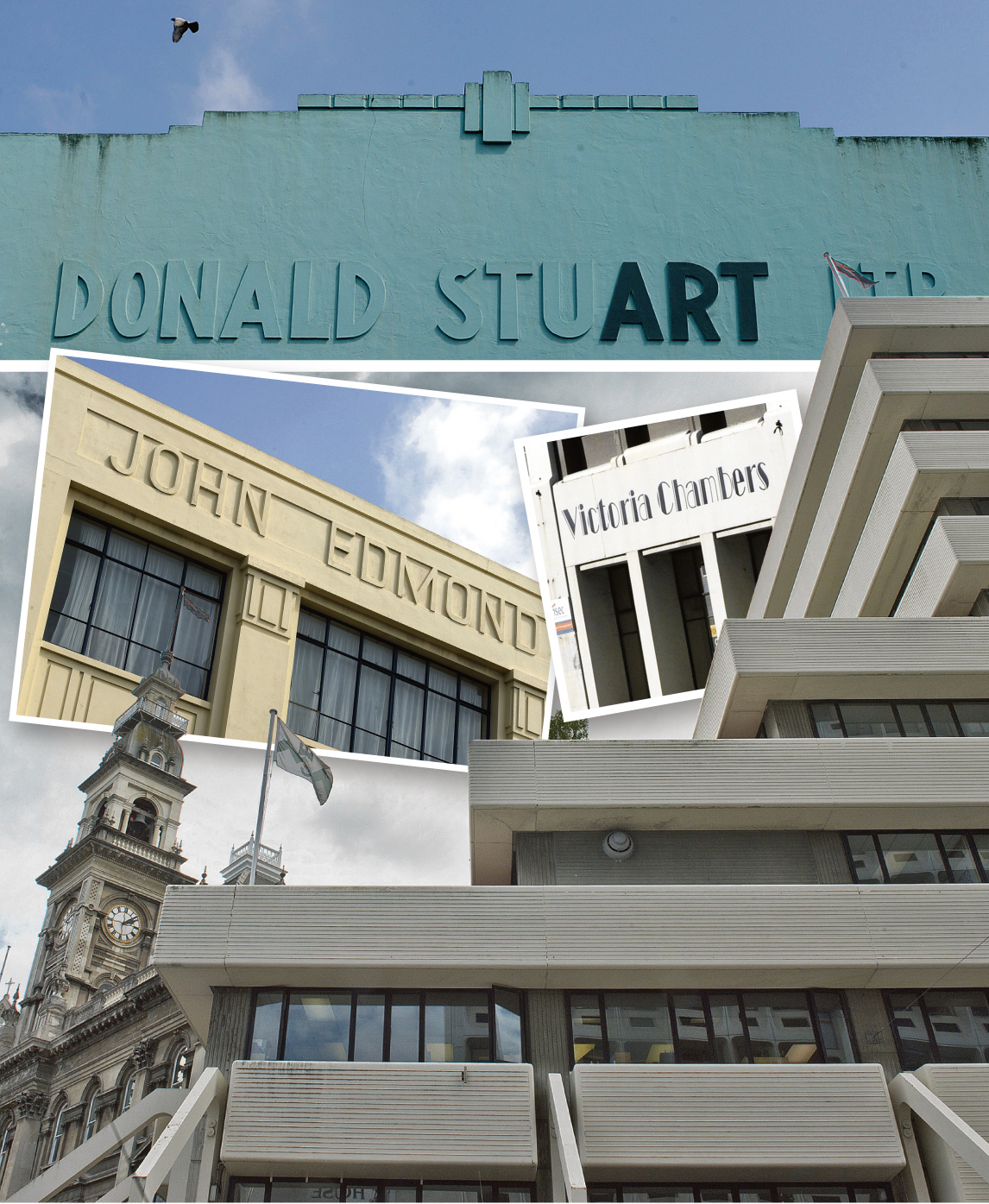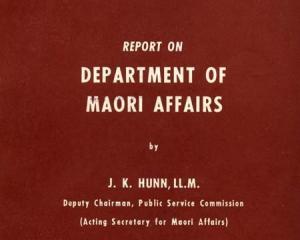

This week he learns more about the victim, and those who might wish him harm, as David Loughrey’s short story continues, in association with Dunedin City of Literature Creative Cities Southern Hui, the University Book Shop and Zeal Steel.
Victoria Chambers was waiting in a meeting room overlooking George St.
The council planner sat at one corner of a large boardroom table, watchful and a little uncomfortable as Sturden entered the room.
She was tall, with a professional air, confident in her own abilities, but she was clearly rattled by the news of the killing.
He looked past her for a moment, outside where office workers queued to buy lunch, an elderly couple entered a chemist, and a businessmen buttoned his suit coat against the breeze as a bus roared up the short slope to the Octagon.
"You have heard what happened?'' he asked her.
"It's so horrible,'' she replied, "there seems no reason for it.
"John was doing such good things for the city, he was so full of energy.
"He did a lot for the street art scene, let them use his buildings for their work.''
She held her hands tight together, her knuckles turning white.
"What do you need to know?''
Sturden looked down at the desk, feeling uncomfortable for a moment to have to extract information from her.
"The librarian at the Athenaeum told me you might know about some tension or dispute among the building owners, some sort of legal action?''
"They are so tiresome sometimes.
"We, the heritage development team I mean, are trying to help our heritage buildings be redeveloped, but it has caused resentment among other businesses.
"You provide rates relief for one group, and others resent it, tidy up one street and another wants theirs done.
"There are always consequences, no matter how good one's intentions, but nothing,'' she hesitated for a moment, "nothing like this.''
"I've heard about someone called Rackney, you know him?
"I've met him a few times, and I've had to deal with his legal manoeuvrings.
"He owns various businesses, and he owns properties.
"John was planning to open a retail outlet in the warehouse precinct, something to do with selling art, Rackney fought it through the resource consent process and it went to court.
"It's still going through that process; I don't know what stage it's at, mediation perhaps.''
Sturden sat silent for a minute, listening to the soft rumble of an escalator outside the room, and thought of the crime that had been committed, the level of passion or hatred that would guide the hand that struck such a violent blow.
"Does Rackney seem like a man with a temper?'' he asked.
"He's a bully.''
Chambers hesitated, perhaps having spoken too freely, and appeared to choose her words more carefully.
"One day he's your best friend, clasps you on the shoulder, full of bonhomie.
"The next he's an overbearing - I'm not sure how to say it politely - yes, he has a temper, I'm not sure it extends to killing someone, though.''
Sturden took his lunch at a bar in the Octagon.
Outside the window the sun had broken through after the wilder weather of the morning, and its heat caused steam to rise from the asphalt, eddying in tiny spirals as it was kicked up behind the wheels of passing cars.
He had wine with his meal, and another after, something he had been doing more regularly of late, something he told himself eased his stress and allowed him to think.
He asked the waiter for a third.
He had taken a seat in the corner of the bar, watchful lest he was seen drinking, and took his wine steadily, in small sips.
The warehouse precinct had been much in the news in the last few years, credited with helping revive the city's fortunes.
Sturden remembered reading of buildings being re-opened for use by tech companies and had seen the rise of bars and cafes in the area.
There were street art tours for people who liked such things, and an annual street party.
He thought about the city, how it now seemed a more interesting place to live, somewhere things seemed to be happening.
He sat back in his seat enjoying his own thoughts, feeling a sense of wellbeing from the wine, and wished more than anything he could stay for another.
From the periphery of his vision, he noticed someone approaching.
Winding his way through the tables, his chest thrust out, he was wearing pointed-toe brown shoes, jeans, a business shirt and a blue suit coat.
His hair was cut in a certain style, short at the sides and with a sort of wave on top, the sort adopted by younger men, and unbecoming for a man who appeared to be in his late forties.
He seemed full of himself, faintly ridiculous, and Sturden found him instantly repelling.
He thrust his hand out; his nails were somehow too clean and buffed and his handshake was unnecessarily firm and long-lasting.
Sturden vaguely recalled his face; he had been in trouble for breaching his liquor licence.
"I heard about John Edmond,'' he said, "that's a bad business.''
"News travels fast.''
The man's name was Donald Stuart, he owned the bar, he told Sturden proudly, and knew this fellow and that, knew what was going on behind the scenes, he said in a conspiratorial way.
"You'll be investigating this?'' he asked.
Sturden didn't respond, unwilling to be involved in the man's self-aggrandising collection of half-truths and gossip.
"I knew him, you know,'' Stuart told him, holding his gaze for a little too long.
"I talked to him about starting a bar in one of his buildings in the precinct, but it never quite happened.
"He could be difficult, he was very particular.''
Sturden wondered whether the man might have some useful insight, and despite what he realised was a surprisingly and perhaps unnecessarily strong distaste he felt, chose to continue the conversation.
"Particular?''
"He liked architecture, and he liked art - those graffiti people - but yes, he was particular.''
"You mean street artists?''
"It's not something I know much about; this,'' he said a little grandly, indicating the bar with a sweep of his hand, "is what I know about.''
"And how did that manifest itself?'' Sturden asked him, his voice betraying a hint of irritation, steering him back on topic.
"He was very direct, he said things as he saw them.''
"What does that mean?''
Stuart thought about the question for a moment, rubbing his palms on his thighs.
"He once told me he thought some of the graffiti - the street art - was rubbish.
"He said some was good, but the rest was ... I can't remember ... he used a word, I think it meant overdone, tired or something.''
"Do you know a fellow Rackney?''
"We all know Gerald,'' Stuart said.
"He seems to own half the buildings in town.
"He's a self-made man, not the sort that got it all handed to him on a plate.
"He does like to use his lawyers though. People say he's used gang members to do his dirty work, it's best not to cross him.''
Sturden sat for a while at the table after the man left, feeling a little heavy from the wine, but still enjoying its glow.
He stopped on the way to the station to buy mints to hide the smell of alcohol.
On his return, officers working on the case briefed him on their investigations so far.
John Edmond had no partner and no children.
He was trying hard to expand his building business, was redeveloping a couple of his own heritage buildings, and his staff had told officers he worked up to 18 hours a day to do that.
He appeared to have good relationships with those he dealt with, and had been involved with a group promoting street art, negotiating to have the wall of one of his buildings so adorned.
There had been legal action over one of his buildings, and that debate had spilled over into the newspapers.
However, there was no obvious motive for anybody to kill him, no domestic dispute, no illicit behaviour or dark liaisons that might have enmeshed him in the seedier side of life.
He neither drank, smoked, nor took drugs.
His home was tidy and tastefully arranged, his bookshelves spoke of his interest in the likes of art and engineering, and the use of concrete in modernist architecture.
He had obviously had breakfast and left the dishes tidily stacked before he left for the Athenaeum, the calm morning routine of a man with no inkling his life was shortly to end.
The officers were baffled.
Sturden asked them to continue interviewing the victim's network of friends and business associates, before retiring to his office.
He made a phone call to a colleague, and discovered Rackney had been accused of using a gang member to intimidate a rival, but it had not gone to court.
He pondered the matter as he took in the view from his office; the sun was casting long shadows across the city streets, and workers were beginning to pool at street crossings before streaming across the road when the green man flashed.
He wondered at the city's commercial sector, which seemed to him a sea of competing interests fuelled by an array of odd personalities, all strangely passionate about their divergent objectives.
Beneath the apparent calm of the working week a slow burning fire of frustration, of desire, of resentment, of need, of ambition powered the machine wrought of human connections that held the disparate parts of the whole together and kept them going as one.
But somewhere in that machine a connection had burned and broken.
He rested his head on the back of his chair, closed his eyes for a moment, but stopped himself from slipping into sleep.
He sighed.
Tomorrow he would visit Gerald Rackney.












